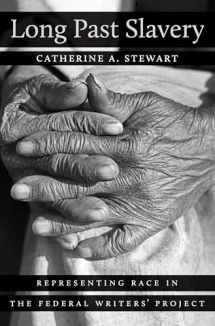
Long Past Slavery: Representing Race in the Federal Writers' Project
Book details
Summary
Description
From 1936 to 1939, the New Deal's Federal Writers' Project collected life stories from more than 2,300 former African American slaves. These narratives are now widely used as a source to understand the lived experience of those who made the transition from slavery to freedom. But in this examination of the project and its legacy, Catherine A. Stewart shows it was the product of competing visions of the past, as ex-slaves' memories of bondage, emancipation, and life as freedpeople were used to craft arguments for and against full inclusion of African Americans in society. Stewart demonstrates how project administrators, such as the folklorist John Lomax; white and black interviewers, including Zora Neale Hurston; and the ex-slaves themselves fought to shape understandings of black identity. She reveals that some influential project employees were also members of the United Daughters of the Confederacy, intent on memorializing the Old South. Stewart places ex-slaves at the center of debates over black citizenship to illuminate African Americans' struggle to redefine their past as well as their future in the face of formidable opposition.
By shedding new light on a critically important episode in the history of race, remembrance, and the legacy of slavery in the United States, Stewart compels readers to rethink a prominent archive used to construct that history.


We would LOVE it if you could help us and other readers by reviewing the book
Book review



